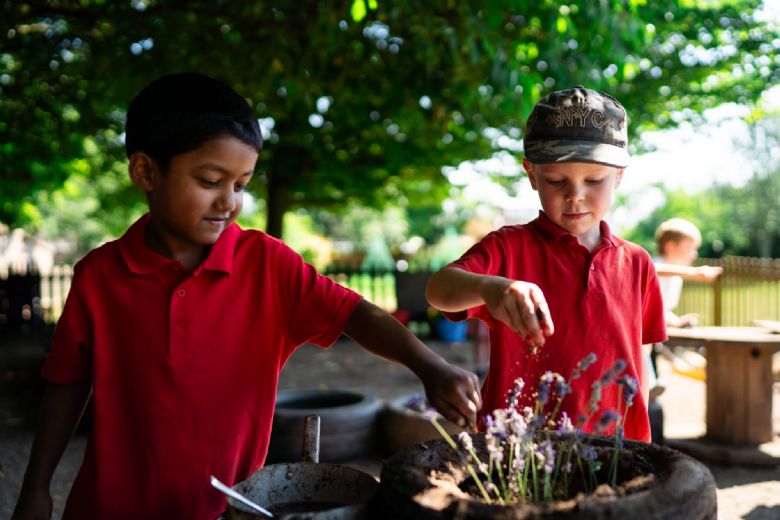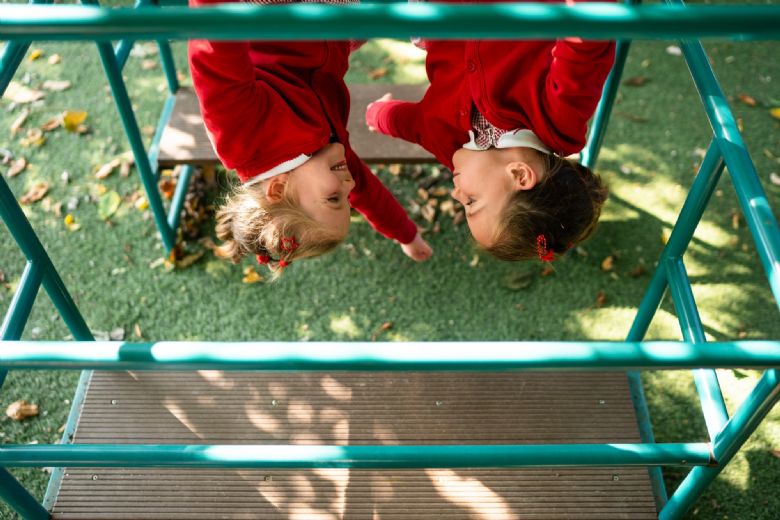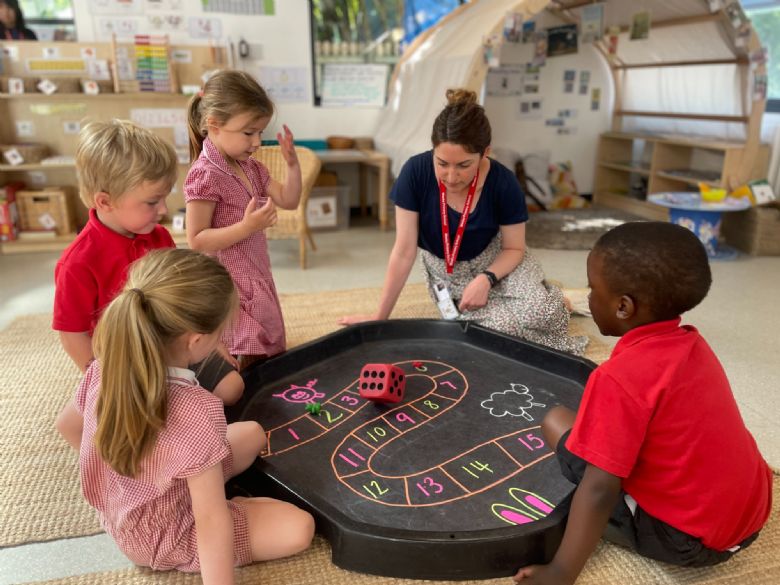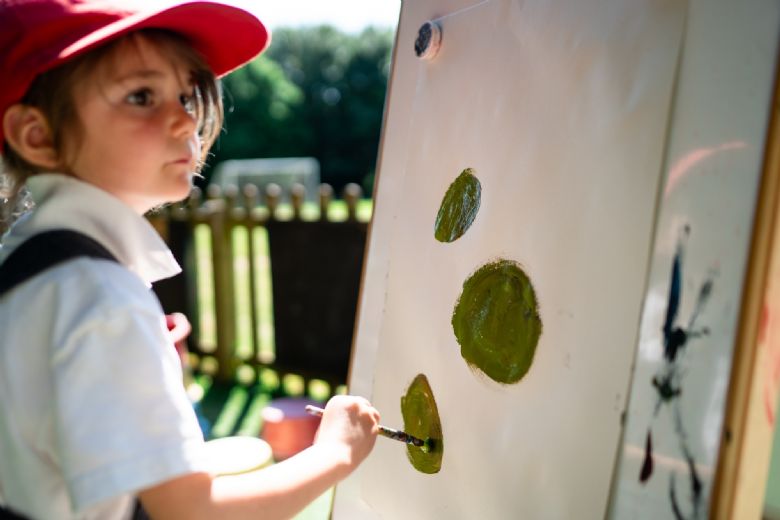EYFS Ash & Oak
Early Years Curriculum
Characteristics of effective teaching and learning
Part of the Early Years Foundation Stage (EYFS) curriculum is known as the ‘Characteristics of Effective Teaching and Learning’ which focusses on how children are learning to learn, rather than what they are learning.
These are divided into three areas:
- Playing and Exploring
- Active Learning
- Creating and Thinking Critically

Areas of Learning
The EYFS is made up of seven closely linked areas of learning. There are three prime areas and four specific areas of learning.
The three prime areas are crucial for igniting children’s curiosity and enthusiasm for learning and for building their capacity to learn, form relationships and thrive. These three areas, the prime areas, are:
Personal, Social and Emotional Development
- Building Relationships
- Managing Self
- Self Regulation
Communication and Language
- Listening, Attention and Understanding
- Speaking
Physical Development
- Fine Motor
- Gross Motor
Pupils need to be secure in all three of these areas before they are ready to absorb and learn skills such as reading and writing.

There are four specific areas through which the three prime areas are strengthened and applied. These are:
Literacy
- Reading
- Writing
Mathematics
- Number
- Numerical Patterns
Understanding of the World
- People, Culture and Communities
- Past and Present
- The Natural World
Expressive Arts
- Creating with Materials
- Being Imaginative and Expressive
None of these areas can be delivered in isolation from the others. They are equally important and depend on each other. All areas are delivered through a balance of adult-led and child-initiated activities. In each area there are Early Learning Goals (ELGs) that define the expectations for most pupils to reach by the end of the EYFS.
Weeke EYFS Curriculum - Yearly Overview
Our Learning Themes
Below is a set of overviews for the learning covered each half-term and more detailed information about the Little Wandle phonics taught each half term. These are our starting points but will vary depending on the interests of the children in each cohort.
AU1 - Who do you think you are?
SU2 - Where would you like to go on holiday?

Weeke Aspirations
- Aspiration 1 - To build new friendships.pdf
- Aspiration 2 - To take care and responsibility for my environment.pdf
- Aspiration 3 - To learn to ride a balance bike.pdf
- Aspiration 4 - To build a model out of wood.pdf
- Aspiration 5 - To take a walk with my friends in the local area.pdf
- Aspiration 6 - To retell a story to another child in school.pdf
Intent
At Weeke, we aim to provide an exciting and motivating learning experience where children are always ‘thinking, talking, doing’. We believe these active, first-hand experiences encourage children to build resilience, ambition, and a lifelong love of learning. Our carefully organised learning environment provides children with familiarity, giving them the tools and independence to be the leaders of their own learning. We recognise these first years of education are crucial in laying the foundations and language for their future learning, giving them the opportunity to explore, create and think critically alongside their peers. We recognise that all children are unique and will join us with their own set of life experiences. We celebrate and welcome these.
Implementation
We have designed our curriculum with these aims in mind to create a happy and productive learning experience for all our children. From the warm welcome on the door, the calm routines, the beautiful indoor and outdoor environment, to the inspiring experiences organised to link in with our learning, we are passionate about making the most of every opportunity!
Our curriculum involves half-term themes, such as ‘Who do you think you are?’ or ‘Journeys’. We carefully structure our day to balance short adult-led learning with longer child-led learning sessions. We call the latter ‘choose your learning’, and this is where children can challenge themselves and follow their curiosity as they play and explore. Our staff team continually interact with children during these times to extend learning and maximise developmental progress.
Our children make great gains during EYFS, consistently showing high levels of well-being and engagement, demonstrating our school values of kindness, respect, responsibility and excellence.
Impact
The Early Years curriculum at Weeke is reflected by having well-rounded, happy and confident children transitioning into Year 1. Our children are often role models for others in school. We measure children’s learning and progress across the year through formative and summative assessment, which is based on the teachers’ knowledge of the child and their learning journeys.
We want you and your child(ren) to have an engaging and interesting learning experience as they go through Early Years. To achieve this, we have produced a range of resources, activities, videos and support guidance to help you be part of that learning journey. Please use the information and links on the page both with your child and as a guide to help you understand more about our curriculum.
EYFS Curriculum Documents
Below are a number of school and nationally recognised documents that will help you as a parent understand more about the Early Years Foundation Stage and our curriculum.
- Statutory framework for the Early Years Foundation Stage
- Development Matters - non-statutory curriculum guidance for Early Years Foundation Stage
Below is a link to a video that explains the areas of development in Early Years.
